ARTICLE AD BOX

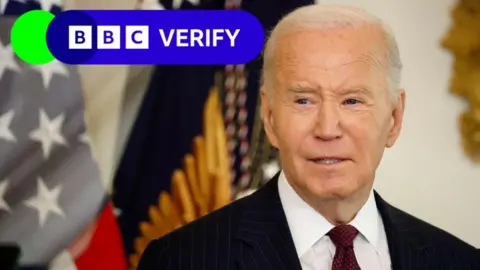 Getty Images
Getty Images
Since Hunter Biden's conviction on federal felony gun and tax charges over the summer, the White House has insisted that President Joe Biden had no intention of pardoning his son.
But on Sunday, the president issued a controversial sweeping pardon, saying his son had been subject to attacks from his political rivals.
Republicans have been quick to denounce the move - citing Biden's previous pledges not to intervene on Hunter’s behalf. The move has also cast a renewed spotlight on the role of presidential pardons and the independence of the US justice system.
President-elect Donald Trump called the intervention an “abuse”, while House Oversight Committee chair James Comer accused President Biden of seeking to “avoid accountability”.
Did Biden rule out a pardon?
Hunter Biden pleaded guilty in two separate trials over the summer - one on federal tax charges and one of lying about his drug use on a form when buying a handgun.
In the aftermath of his conviction, the White House immediately made it clear that he could not expect a presidential pardon from his father.
In an interview with ABC in June, when asked whether he had “ruled out a pardon” for his son, Biden replied: “Yes.”
Biden also told reporters at a G7 summit in June: "I said I'd abide by the jury decision, and I will do that. And I will not pardon him.”
As recently as 7 November - just two days after Donald Trump clinched his return to the White House - Biden administration officials were still insisting that the president had no intention of pardoning his son.

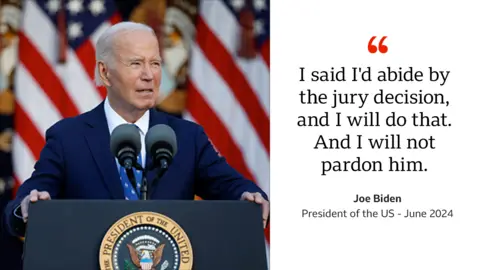
When asked in a news conference if President Biden would be tempted to help Hunter, White House Press Secretary Karine Jean-Pierre said: “We’ve been asked that question multiple times, our answer stands, which is no.”
Biden also emphasised in June that he was “satisfied” that his son had received a fair trial - in contrast to his comments on Sunday where he said Hunter had been the subject of “a miscarriage of justice”.
Is there precedent for Biden’s move?
Presidential pardons are not rare and there have been examples of previous presidents pardoning family members.
In January 2001 - just before he left office - Bill Clinton pardoned his half-brother for drug distribution convictions dating back to 1985.
And Donald Trump pardoned Charles Kushner - the father of his son-in-law Jared Kushner - in December 2020 for making false statements during an investigation, witness tampering and tax evasion.
Over the weekend the president-elect appointed Charles Kushner as his nominee to be US ambassador to France, a move which has raised some eyebrows in Paris.

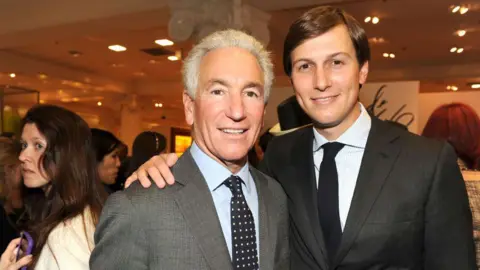 Getty Images
Getty Images
Charles Kushner - pictured with his son Jared - is one of those pardoned by President Donald Trump
Biden’s pardon covers any crimes committed by his son over an almost 11-year period from 1 January 2014 to 1 December 2024.
Hunter was not due to be sentenced until later this month. According to the US justice department it is “highly unusual” for a president to pardon someone before they are indicted, convicted or sentenced for a federal offence - though there have been some notable exceptions.
Nor has a president has ever pardoned his son before, and the length of the pardon Biden has granted has raised questions.
What has Biden said about Trump’s past pardons
Biden has been outspoken in attacking some of the pardons his predecessor issued during his first term in office.
In 2019, Biden attacked Trump for pardoning two US army officers - one of whom had been convicted and one who was set to stand trial - for war crimes in Afghanistan.
Biden said the then-president had betrayed “the rule of law, the values that make our country exceptional and the men and women who wear the uniform honourably”.
Later, in 2020, when Trump commuted the sentence of his informal adviser Roger Stone, Biden called his rival “the most corrupt president in modern American history”.
More broadly, during his 2020 campaign, Biden accused Trump of undermining the office of the attorney general and politicising the office.
"The attorney general is not the president's lawyer. It’s the people's lawyer,” Biden said. “We never saw anything like the prostitution of that office like we see it today.”



 1 month ago
9
1 month ago
9
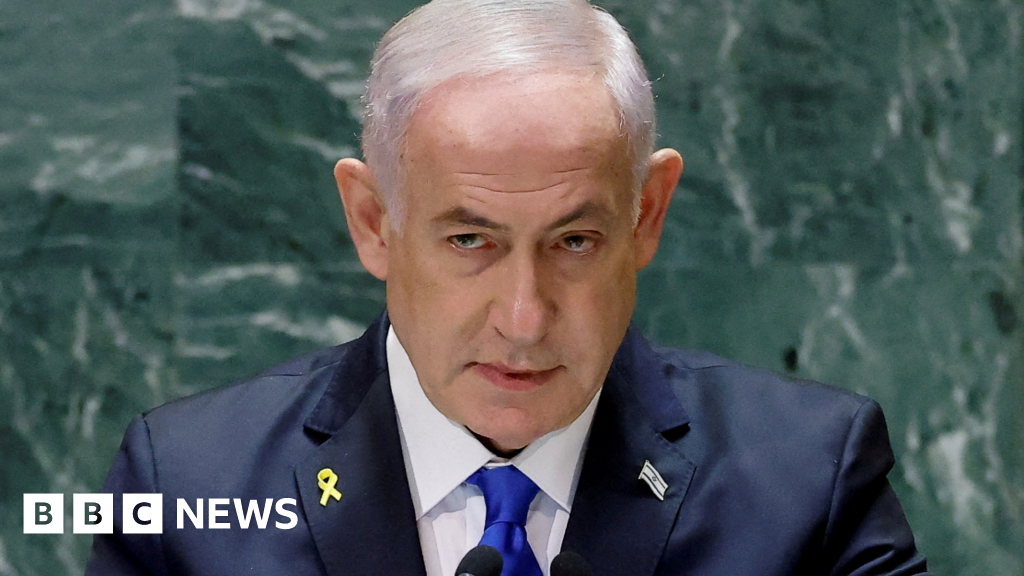

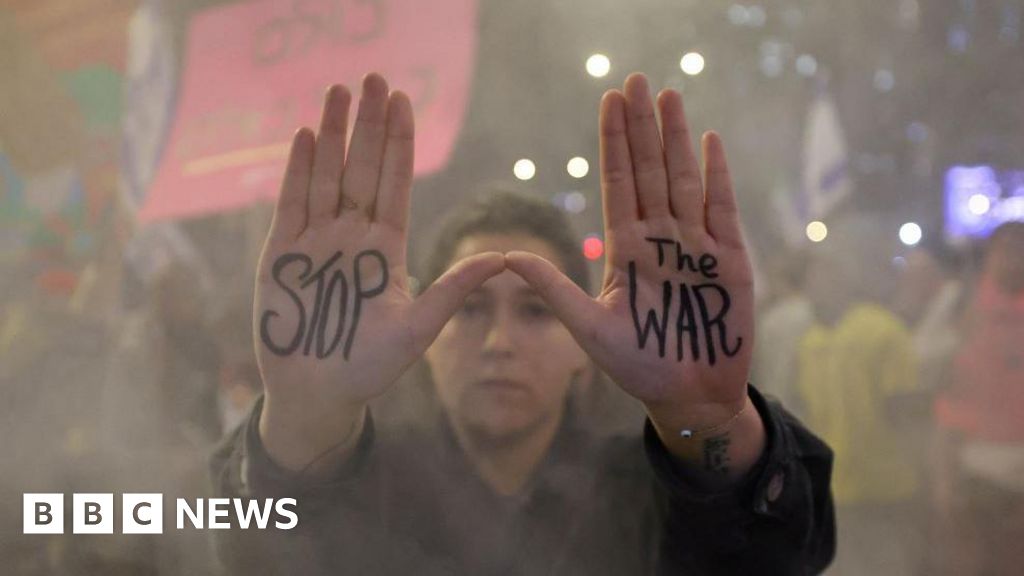





 English (US) ·
English (US) ·